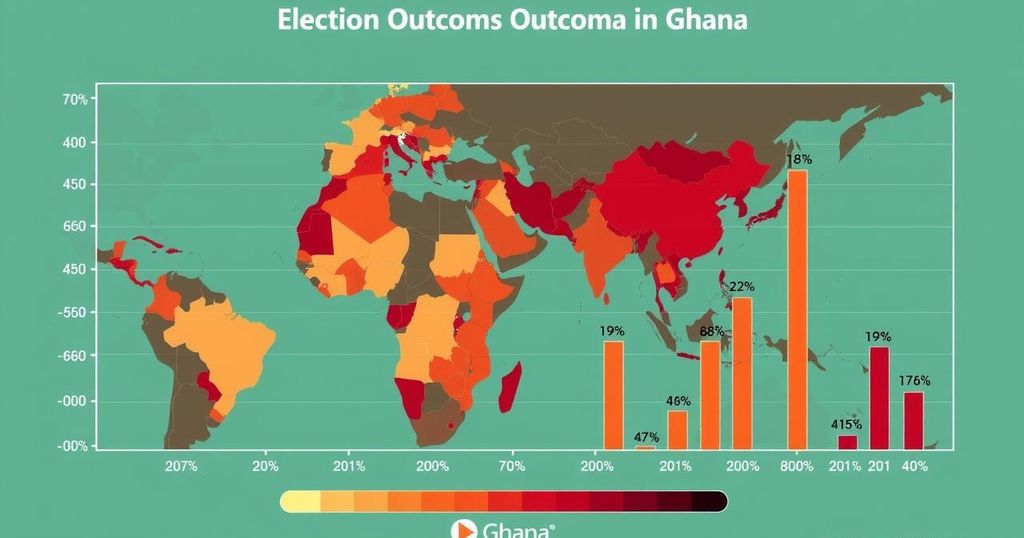The 2024 Ghana elections resulted in a significant victory for the opposition NDC, marking a major loss for the ruling NPP, who failed to achieve a third term after considerable public dissatisfaction with their handling of the economy and social issues. Key factors in the NPP’s defeat included rising inflation, unemployment, and widespread corruption, which shifted voter sentiment predominantly in favor of NDC candidate John Mahama. This election highlights the growing public demand for effective governance amid economic hardship.
The 2024 Ghanaian elections have resulted in a significant political shift, with the ruling New Patriotic Party (NPP) losing to the opposition National Democratic Congress (NDC). This outcome marks a notable historical moment as the NPP’s attempt to secure over eight years in power—promoted under the slogan “Break the Eight”—has failed, influenced heavily by widespread dissatisfaction regarding economic management and social issues. This sentiment was further exacerbated by a soaring inflation rate, unemployment, and various controversial taxation policies that had frustrated many Ghanaians.
Prominent economic indicators showed Ghana grappling with inflation peaking at a staggering 54% in 2023. The nation was also characterized by a significant increase in unemployment rates, particularly among youth aged 15-35 years, where the figure rose to 14.7%. Furthermore, concerns over corruption involving government officials compounded citizens’ frustrations, weakening support for the administration. As citizens expressed their grievances, particularly relating to the cost of living crisis, the government’s narrative of job creation and infrastructural promises began to lose credibility.
In light of these challenges, pre-election surveys conducted by Global Info Analytics indicated a trend towards NDC support, especially among young voters, who believed John Mahama offered a viable alternative amidst economic despair. The results not only reflected a loss of parliamentary seats for the NPP but also underscored a shifting political landscape that new and first-time voters strongly influenced. Many prominent NPP officials, including key ministers, were ousted in their respective districts, indicating a wider discontent with party governance.
Overall, the loss of the NPP has been attributed to a culmination of several factors affecting the populace: the economic crisis, rampant corruption, ineffective governance strategies, and an organized opposition capable of rallying voter support based on pressing local issues. This election serves as an indicator of the prevailing challenges in Ghana’s political dynamics and underscores a growing demand for responsive governance.
The 2024 elections in Ghana marked a critical shift in political power, as the ruling party, the New Patriotic Party (NPP), was defeated by the opposition, the National Democratic Congress (NDC). This event is particularly significant in the context of Ghana’s political history, which has seen no ruling government maintain power beyond eight years since the establishment of the Fourth Republic in 1992. The NPP’s campaign aimed to break this psychological threshold with its slogan “Break the Eight,” however, the longstanding dissatisfaction with its economic policies and governance led to their unexpected loss. This election reflects broader political trends within African democracies, where economic hardships often precipitate shifts in power between ruling and opposition parties.
In conclusion, the 2024 elections in Ghana represent a pivotal moment in the nation’s democratic journey, revealing sharp discontent with the ruling NPP amid economic turmoil and governance challenges. As the NDC assumes power, the results underscore the electorate’s demand for change and responsiveness in addressing economic difficulties, corruption, and public services. This shift may serve as a cautionary tale for ruling parties across Africa facing similar dilemmas in governance and the growing expectations of their respective voters.
Original Source: www.bbc.com







